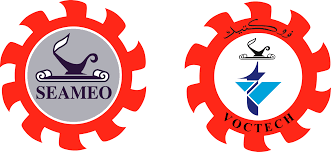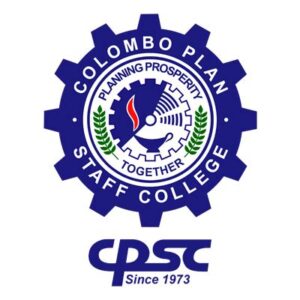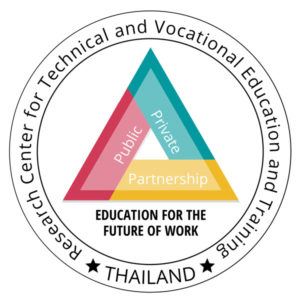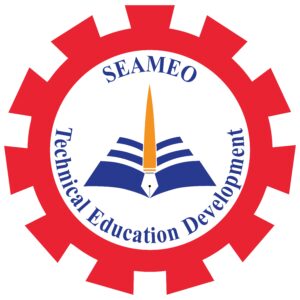Partner Institutions

RAVTE: The Regional Association of Technical Education in Asia (RAVTE) was founded in March 2014 by fourteen universities in charge of vocational teacher training and vocational education research. RAVTE’s mission is to promote international vocational education and training cooperation and by emphasizing the importance of TVET in general and vocational teacher education (VTE) in particular at regional and national levels. RAVTE intends to support personnel development in order to enhance TVET quality and efficiency as well as fostering the ongoing integration activities and developments in East and Southeast Asian countries. Today, the association comprises of 26 universities from universities from Cambodia, China, Indonesia, Laos, Malaysia, the Philippines, Thailand, Singapore, Taiwan and Vietnam.
In its research and cooperation activities, RAVTE’s special focus lies on:
- work-based learning in TVET,
- public and private stakeholder engagement
- enhancing TVET in the context of Industry 4.0
- encouraging Green TVET in order to promote green skills and green jobs
Please click here for more information on RAVTE.

SEAMEO VOCTECH: The SEAMEO Regional Centre for Vocational and Technical Education and Training (SEAMEO VOCTECH) was established in Brunei Darussalam in 1990 as one of the centres within the Network of the Southeast Asian Ministers of Education Organisation (SEAMEO). SEAMEO VOCTECH aims at assisting SEAMEO member countries in identifying and overcoming common challenges in the field of technical and vocational education and training (TVET). It also works towards making its members’ TVET systems fit for Industry 4.0.
SEAMEO VOCTECH supports its members by offering SEAMEO training programmes in the following areas:
- Curriculum Design and Development
- Teaching, Learning and Assessment
- Information and Communications Technology
- Management
- Research
Please click here for more information on SEAMEO VOCTECH.

UNESCO Chair on TVET and Competence Development for the Future of Work at TU Dortmund University, Germany: In order to advance the further development and quality improvement of vocational education and training systems worldwide, the Chair promotes in particular the practice-oriented dialogue between science and politics. One focus of the Chair is, for example, the development of action- and reform-oriented approaches to improve TVET systems through policy recommendations and competence building at the operational level. Another research focus is the further development of vocational didactics and the quality improvement of the training of teaching staff. Furthermore, the chair focuses on the transfer of knowledge in the field of technical and vocational education and training on an international level, especially through cooperation with universities in East and Southeast Asia. Overall, the Chair supports the establishment of vocational education as an independent academic discipline. Through its activities, it contributes to the achievement of the global Sustainable Development Goals (SDGs) 4 (“Quality Education”) and 8 (“Decent Work and Economic Growth”), as well as to the implementation of the UNESCO Strategy for Vocational Education and Training TVET 2022-2029.
Please click here for more information on the UNESCO Chair at TU Dortmund University.

CPSC: The Colombo Plan Staff College for Technician Education (CPSC) is an Inter-Governmental Organization (IGO), which consistently addresses issues in technical and vocational education and training in the Asian and Pacific region. It was established in 1973 at the 23rd Consultative Committee Meeting of the Colombo Plan held in Wellington, New Zealand and its aim is to assist the member countries of the Colombo Plan in developing and enhancing their national TVET systems by applying a South-South cooperation approach. After being hosted in the Republic of Singapore, CPSC is located in Manila (Philippines) since 1987. CPSC has 26 member countries, who are supported in their aim of improving TVET quality through high-quality staff development and in-service training of TVET teachers and trainers and senior TVET staff. Among the CPSC’s main functions fall:
- Promotion, coordination and implementation of research and development activities in the field of TVET
- Advice and assistance for member countries in developing their TVET teacher education
- Provision of further education courses and training for senior TVET staff
- Organisation of conferences on various TVET topics
Please click here for more information on CPSC.

UNESCO Bangkok: The UNESCO Multisectoral Regional Office in Bangkok (UNESCO Bangkok) was established in 1961 as the UNESCO Asian Regional Office for Primary and Compulsory Education. It then became the UNESCO Principal Regional Office for Asia and the Pacific in 1987 and the UNESCO Asia and Pacific Regional Bureau for Education in 2000. Since 2023, it is the UNESCO Multisectoral Regional Office in Bangkok. UNESCO Bangkok represents UNESCO in the United Nations Regional Collaborative Platform in Asia and the Pacific, and it serves as the secretariat of the Learning and Education 2030+ Networking Group in Asia and the Pacific. Furthermore, UNESCO Bangkok hosts the Regional Office for Asia and the Pacific of the UNESCO Institute for Statistics (UIS) and the Intergovernmental Oceanographic Commission’s Sub-Commission for the Western Pacific (IOC/WESTPAC).
In line with UNESCO’s overall mission, UNESCO Bangkok supports the implementation of the Sustainable Development Goals (SDGs) and contributes to the building of peace, the eradication of poverty, sustainable development and intercultural dialogue through education, the sciences, culture, communication and information.
Please click here for more information on UNESCO Bangkok.
Here you will find more information on UNESCO Bangkok’s work in the Asian-Pacific region.

SEAMEO TED: SEAMEO TED (Centre for Technical Education Development) is one of the 26 SEAMEO centers, which is based in Phnom Penh of the Kingdom of Cambodia. It assists SEAMEO member countries in identifying technical education problems and finding alternative solutions for sustainable human resource development through technical education.
The establishment of SEAMEO TED is to support the SEAMEO priority area number 4 of the seven priorities (2015-2035), which is “Promoting technical and vocational education and training (TVET).” It was established by the Royal Government of Cambodia under sub-degree No 107 by the prime minister dated 27 June 2017. SEAMEO TED is under the umbrella of the Ministry of Education Youth and Sport (MoEYS) of Cambodia and SEAMEO Secretariat.
Guided by SEAMEO Priority No 4, SEAMEO TED is aware of the essential role of technical education in enhancing the capacities of people in Southeast Asia and addressing the increasing challenges brought about by the ever-changing education landscape, and the emergence of 4.0 Industrial Revolution.
Programs:
- Public relations and partnership
- Research and development
- Technical education and training.
Please click here for more information on SEAMEO TED.
Sign up for our Newsletter
Here you can subscribe to our newsletter! Through the newsletter we will inform you about new Calls for Papers, the publication of new issues of TVET@Asia as well as the latest publications and events in the field of Technical and Vocational Education and Training.
Here you can subscribe to our newsletter! Through the newsletter we will inform you about new Calls for Papers, the publication of new issues of TVET@Asia as well as the latest publications and events in the field of Technical and Vocational Education and Training.
